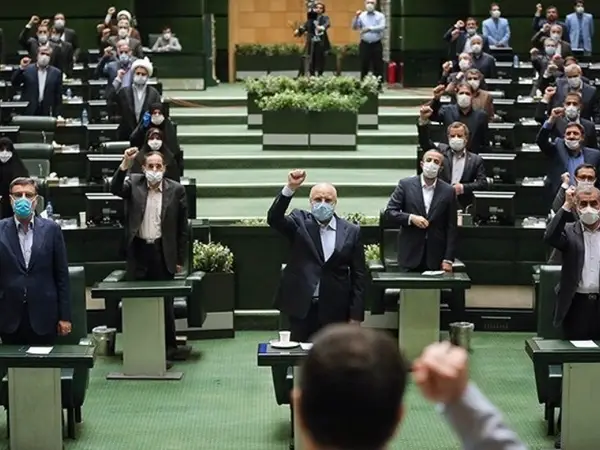Sixty-six Iranian lawmakers demanded Sunday a parliamentary vote on a so-called ‘voting transparency motion.’
In a letter to speaker Mohammad-Bagher Ghalibaf (Qalibaf), the 61 complained that their motion had been “withheld” too long. They insisted any vote should be “transparent” and announced their own votes would be.
Mohammad-Hossein Asafari, a signatory, argued in Khabar Online that the parliament's presidium was obliged to call a vote on any motion backed by at least 50 lawmakers.
None of the 66 signatories was from the small reformist minority. Asafari said that opponents of the motion feared being taken to task by constituents or by rival candidates in future elections. He suggested many parliamentarians were particularly concerned they might be seen as voting against pay increases demanded by employees that the financially hard-pressed government cannot afford.
Many lawmakers might also be concerned that constituents can find out that they vote against their own campaign promises.
But Asafari said “transparency” was nonetheless just as important in parliament as in ministries, the judiciary, and the over-150 state councils that regulate in various areas. "Some of the regulations ratified by them can potentially be a source of economic rente (privilege resulting from undue influence) for certain groups," he alleged.
The term "Vote Transparency Motion" was used in 2017 when the reformist Mohammad-Javad Fathi proposed to amend parliament's procedural regulations but was unable to persuade the conservative-dominated presidium to allow a parliamentary vote despite supporters arguing that Article 69 of the Constitution ruled out secret ballots other than in emergencies, and required parliamentary sessions to be “open, and full minutes of them made available to the public.”
They also said transparency in voting would allow people to evaluate the performance of their representatives and hold them accountable and would also reduce corruption.
"The parliament is the wrong place for the lawmaker who is not brave enough to take responsibility for his vote," Fathi told Tabnak news website back then. The presidium registered a diluted version of the motion, raised by Hossein-Ali Haji-Deligani, in 2018.
But this motion took over two years to reach the parliamentary floor, where it was defeated in February 2021 as the 153 of 234 members present voting in favor was just short of the required two-thirds majority of those present.
That motion called for voting records to be announced unless, in extraordinary circumstances, a motion to the contrary was brought by 15 lawmakers and passed by a simple majority of those members present.
